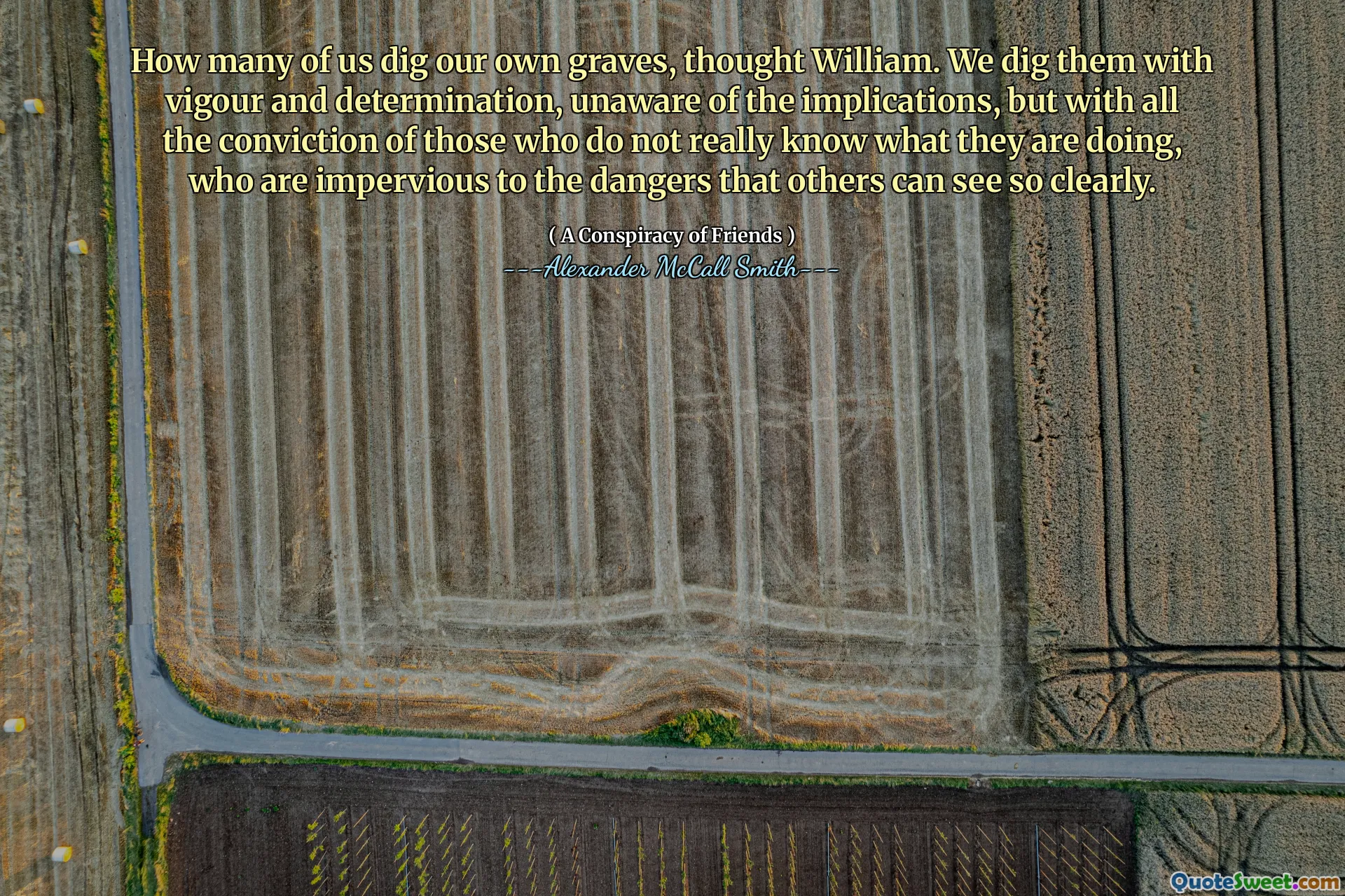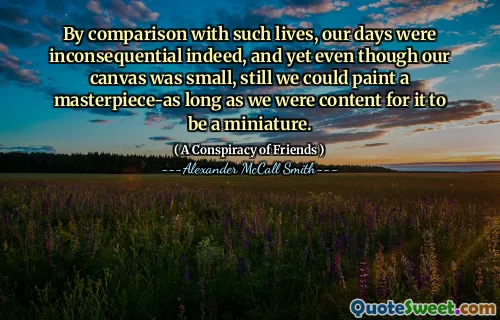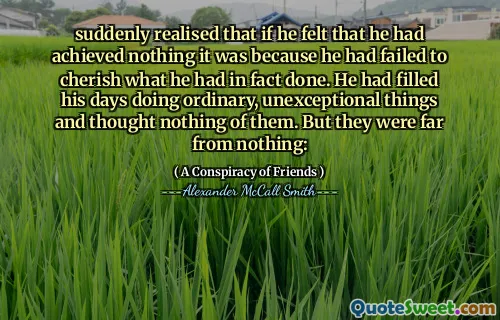
How many of us dig our own graves, thought William. We dig them with vigour and determination, unaware of the implications, but with all the conviction of those who do not really know what they are doing, who are impervious to the dangers that others can see so clearly.
In Alexander McCall Smith's "A Conspiracy of Friends," the character William reflects on the unintentional paths people often take in life. He observes how individuals can energetically pursue actions that may lead to their downfall, seemingly oblivious to the risks involved. This metaphor of digging one's own grave highlights a common human tendency to act without fully considering the consequences of those actions.
William's introspection points to the irony of conviction without awareness, where people are driven by their beliefs and motivations but fail to recognize the potential dangers. It serves as a reminder to be mindful and reflective, suggesting that true wisdom lies not just in determination, but also in the understanding of the broader implications of our actions.











